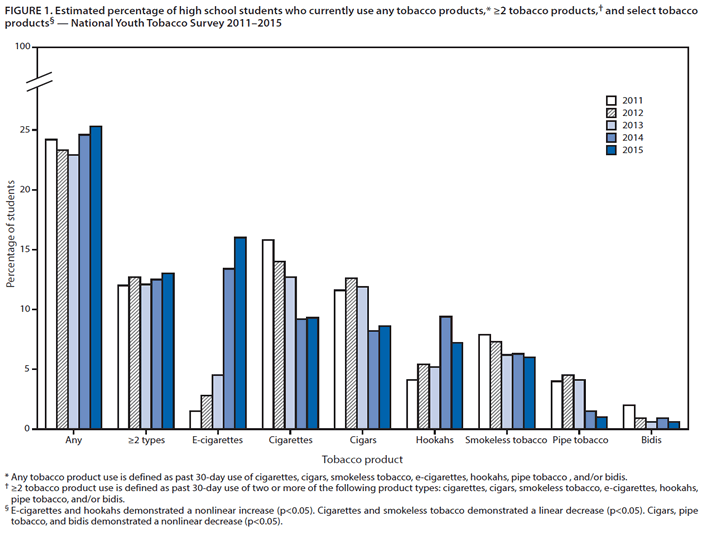April 30, 2016
Fox's new promotional trailer for 'Absolutely Fabulous: The Movie,' hitting theaters in July 2016, shows London fashionista Patsy lighting up a Rothmans cigarette — while coyly covering up the UK health warning on the front of the box.
'Absolutely Fabulous' revives a cringe-inducing British TV comedy series (1992-2012) starring Jennifer Saunders as Edina Monsoon and Joanna Lumley as Patsy Stone.
The 'official international trailer' shows other smokers, including partying supermodel Kate Moss, who is pushed off a parapet into the Thames. Spoiler alert: Moss emerges from the river with her cigarette intact.
Rothmans, a British American Tobacco brand, is gaining market share in Europe.
The MPAA has R-rated 'Absolutely Fabulous' for 'language including sexual references, and some drug use.' The BBC Films production opens in the US on 22 July 2016
This item is cross-posted from http://smokefreemovies.ucsf.edu/blog/summers-ab-fab-movie-features-cigar...
April 30, 2016
While e-cigarettes deliver lower levels of carcinogens than conventional cigarettes, they deliver the same, or a more dangerous, amount of ultrafine particles than conventional cigarettes. Ultrafine particles trigger inflammatory processes that lead to heart and lung disease and can trigger heart attacks. E-cigarette optimists have discounted possible effects of the ultrafine particles in e-cigarettes, arguing that the literature linking particles to heart disease and heart attacks is based on research on air pollution and active and passive smoking, all of which involve combustion.
A new, very well done study by Roberto Carnevale and colleagues, “Acute impact of tobacco versus electronic cigarette smoking on oxidative stress and vascular function,” published in Chest on April 11, 2016, puts this argument to rest. They show that smoking one e-cigarette impacts the functioning of arteries as much as smoking a conventional tobacco cigarette in nonsmokers and smokers alike.
April 29, 2016
Disney has announced that Emma Stone will star as a young Cruella de Vil, confirming leaks first reported by The Hollywood Reporter in January.
In 'Cruella', Stone will recap the early years of the puppy-napping fashionista with two-tone hair, a sleek Bugatti and the longest cigarette holder in Mayfair.
The character debuted in the animated '101 Dalmatians' (1961) and was revived in live-action by Glenn Close in 1996.
Cruella de Vil has been cited by a handful of pro-tobacco bloggers in the UK who claim that adult-rating tobacco imagery would deprive future generations of children of the chance to see, well, '101 Dalmatians'. (And because it is a new production, it would get an R rating.)
As of January 1, 2016, The Disney Company promised to keep all future films released under its Disney, Pixar, Marvel and Lucasfilm labels smokefree.
The new '101 Dalmations' movie will be a test of how serious Disney is about the new policy.
April 24, 2016
The latest data on the film industry and tobacco finds that so-called independent film companies have more than tripled their share of youth-rated films with smoking: from 12 percent in 2005 to 39 percent in 2015.
As the chart below shows, the major studios, who own and are represented by the MPAA, reduced their kid-rated movies with smoking by 64 percent between 2005 and 2010, after which time the number of smoking films has stayed about constant.
Meanwhile, the non-MPAA independents actually released more youth-rated films with smoking, doubling the number between 2011 and 2015. The independents released a total of 53 youth-rated films with smoking in those years, compared to 106 from all of the major studios.
April 21, 2016
 On April 15, 2016 the CDC published "Tobacco Use Among Middle and High School Students -- United States, 2011-2015" in MMWR.
On April 15, 2016 the CDC published "Tobacco Use Among Middle and High School Students -- United States, 2011-2015" in MMWR.
The data (see graph for high school students) show continued growth in e-cigarette use with no drop in cigarette smoking. The data for middle school students show continued growth in e-cigarettes with a small decline in cigarettes.
What this means is that e-cigarettes are continuing to expand the nicotine market among kids. The fact that conventional cigarettes did not drop in high school students and only declined slightly among middle school students is precisely what one would expect if some of the kids initiating nicotine use with e-cigarettes were adding cigarettes, which is what the longitudinal data show (nonsmoking kids who start with e-cigarettes about three times more likely to be smoking cigarettes a year later).
